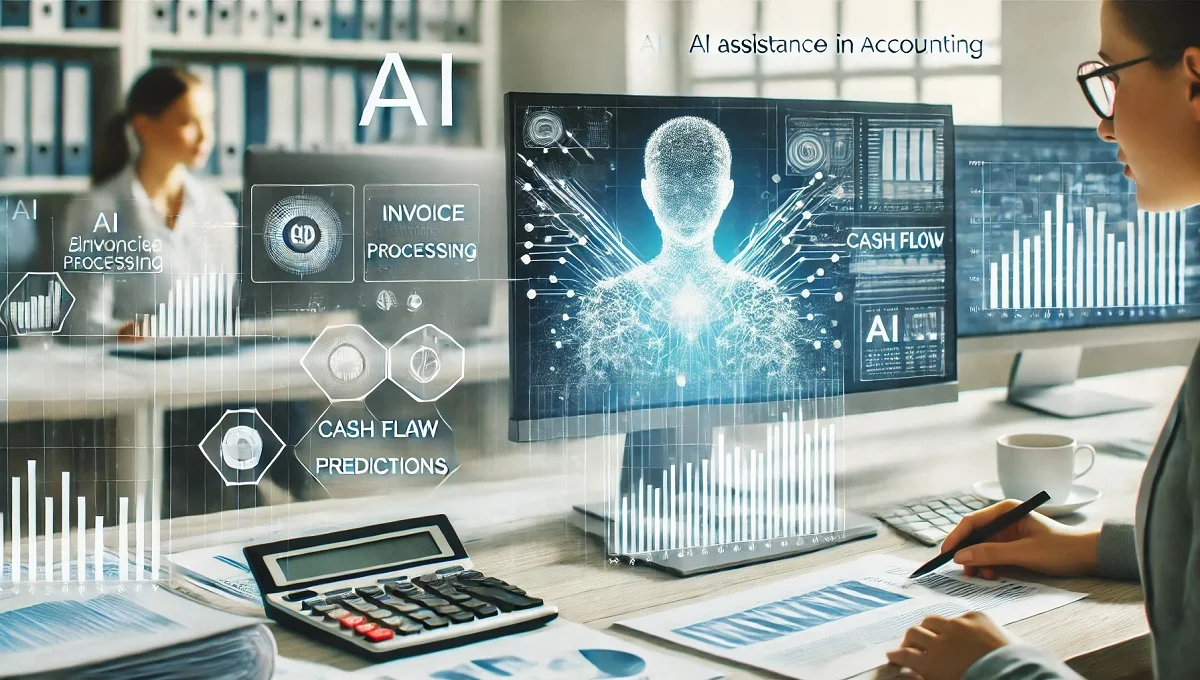The accounting field is not an exception to how Artificial Intelligence (AI) is generally altering sectors. While automating manual tasks and improving data analysis can revolutionize accounting, AI poses serious challenges to accountants' traditional jobs. In this article, we'll explore how AI has affected the accounting industry and pinpoint the particular tasks that are most vulnerable to change.
AI’s Ascendance in Accounting
AI has already made significant inroads into the accounting profession; AI can process vast amounts of data quickly and accurately. The way accountants work is changing due to crucial technologies like machine learning and natural language processing. Here are some ways that AI is changing the accounting industry:
Automation of Routine Tasks: AI excels at automating repetitive and rule-based tasks such as data entry, invoice processing, and reconciliations. This automation reduces the risk of human error and frees up accountants to focus on more strategic aspects of their work.
Data Analysis: AI-driven analytics can sift through enormous datasets to identify patterns, anomalies, and insights that might elude human analysts. This enhances the quality and depth of financial analysis.
Efficiency Gains: AI can perform tasks around the clock without fatigue, significantly improving efficiency and reducing the time required to complete certain accounting functions.
Risk Management: AI can help identify financial irregularities and potential fraud by flagging unusual patterns or transactions. This is a critical function in audit and compliance.
Predictive Analytics: AI can provide forecasts and predictions based on historical data, helping businesses make informed decisions about their financial future.
However, these advancements also raise questions about the future role of accountants and which functions are most at risk of being disrupted.
The Accounting Functions Most at Risk
While AI brings numerous benefits to the accounting profession, it also has the potential to replace or significantly alter several key accounting functions:
Data Entry and Transaction Processing: Routine data entry tasks, such as inputting invoices and receipts, are highly susceptible to automation. AI-powered optical character recognition (OCR) systems can accurately extract information from documents, reducing the need for manual data entry.
Bookkeeping and Reconciliation: The process of reconciling financial records and ensuring they match is a time-consuming task that can be automated with AI. AI algorithms can quickly identify discrepancies and suggest corrective actions.
Tax Preparation: While AI can’t replace the expertise needed for complex tax planning and advisory services, it can automate much of the tax preparation process. AI-powered tax software can calculate tax liabilities, identify deductions, and generate tax forms.
Audit and Compliance: AI is becoming increasingly valuable in audit processes. It can analyze vast datasets, detect anomalies, and identify potential risks or non-compliance issues. However, human auditors are still needed to interpret findings and make judgment calls.
Financial Analysis: AI-driven analytics can provide in-depth financial analysis by crunching large volumes of data. While AI can assist in generating reports and identifying trends, human accountants are essential for interpreting the data and providing strategic insights.
Client Advisory Services: While AI can provide data-driven insights, it cannot offer personalized advice based on a deep understanding of a client’s unique circumstances and goals. Human accountants excel in providing strategic financial guidance and helping clients make informed decisions.
Ethical and Regulatory Oversight: Ensuring that AI systems adhere to ethical guidelines and regulatory standards is a critical responsibility for human accountants. AI can inadvertently introduce biases or errors, and it’s up to accountants to ensure compliance and transparency.
Communication and Relationship Building:
Building trust and maintaining strong client relationships are integral to the accounting profession. These human-centric aspects are challenging for AI to replicate.
Embracing the Change
Rather than viewing AI as a threat, accountants should see it as an opportunity to enhance their roles and provide greater value to clients. Here’s how accountants can embrace the changes brought about by AI:
Skill Enhancement: Accountants can adapt by developing skills that complement AI. This may include becoming proficient in data analysis, AI tools, and cybersecurity.
Focus on Advisory Services: Accountants can shift their focus from routine tasks to offering high-value advisory services. With AI handling the mundane, accountants can provide strategic insights and help clients make data-driven decisions.
Continuous Learning: Staying current with AI technologies and trends is essential. Accountants should invest in ongoing education to understand how AI can benefit their profession.
Ethical Oversight: Accountants can take on the role of ensuring AI systems are ethically and legally compliant. They can help design and implement ethical AI guidelines within their organizations.
Client Engagement: Accountants can invest more time in building strong client relationships, understanding their needs, and tailoring their services accordingly.
What Next for Accounting
The rise of AI in accounting represents a transformation rather than an extinction event for the profession. While certain functions may be automated, the role of the human accountant remains crucial in providing judgment, expertise, and a human touch that AI cannot replicate.
AI will become a crucial tool in the toolbox of the accountant as it develops, increasing efficiency and the caliber of financial services. The successful accountant of the future will blend their knowledge with AI’s ability to provide their clients with the finest results imaginable.
The impact of AI on the accounting industry is evident, and some tasks are more vulnerable to disruption than others. Instead of being afraid about being replaced, accountants should seize the chances AI offers to increase productivity, deliver greater insights, and add value for their clients. By adapting and evolving alongside AI, accountants can continue to thrive in an increasingly digitized world.




